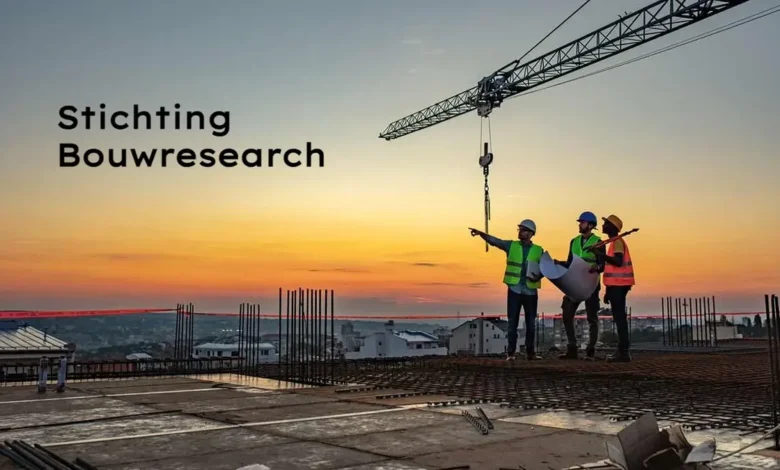Breaking Down the Key Findings from Recent Studies by Stichting Bouwresearch

Introduction to Stichting Bouwresearch
Welcome to the construction innovation and research world, where Stichting Bouwresearch shines as a beacon of knowledge and insight. With a finger on the pulse of industry trends, this esteemed organization conducts groundbreaking studies that unravel the complexities of the construction sector. Join us on a journey through recent findings from Stichting Bouwresearch’s latest investigations as we delve into critical insights shaping the future of construction practices.
Overview of Recent Studies Conducted by the Organization
Stichting Research, a renowned organization in the construction industry, has been actively conducting a series of recent studies to provide valuable insights into current trends and developments. These studies cover various topics, from technological advancements to sustainability practices within the construction sector.
Through its research initiatives, Stichting Research aims to uncover key findings that can help professionals in the field make informed decisions and stay ahead of the curve. By analyzing market data and industry statistics, it offers a comprehensive overview of the ever-evolving landscape of construction.
Their studies delve deep into digitalization, labor shortages, and environmental impact, shedding light on crucial areas that require attention and innovation. With a focus on practical implications and real-world applications, Stichting Bouwresearch’s work serves as a beacon for progress in an increasingly complex industry.
Key Findings from Studies on Construction Industry Trends
Stichting Research has been at the forefront of analyzing construction industry trends, providing valuable insights into the ever-evolving landscape. Recent studies conducted by this organization have shed light on critical findings shaping the construction sector’s future.
One significant discovery is the increasing emphasis on stichting bouwresearch sustainability practices within the industry. With a growing awareness of environmental impact, more companies are adopting eco-friendly building materials and designs to reduce their carbon footprint.
Moreover, technological advancements such as Building Information Modeling (BIM) have revolutionized project management processes, improving efficiency and cost-effectiveness in construction projects.
Additionally, there is a noticeable shift towards modular construction methods, allowing for faster build times and increased flexibility in design options. This trend is reshaping traditional construction approaches and opening up new opportunities for innovation.
As we delve deeper into these findings, it becomes evident stichting bouwresearch that staying informed about emerging trends is crucial for businesses to remain competitive and adapt to an evolving market.
Impact of COVID-19 on the Construction Industry
The Covid-19 pandemic has undeniably left its mark on the construction industry, causing disruptions and challenges. With supply chain issues, project timeline delays, and on-site safety concerns, construction companies have been forced to adapt quickly to a new reality.
Many projects were put on hold or scaled back as lockdowns and restrictions took effect worldwide. The need for social distancing measures also impacted productivity levels and added additional costs to ensure worker safety.
Despite these setbacks, the industry showed resilience by stichting bouwresearch embracing digital technologies for remote work collaboration and virtual project management. Companies that invested in innovative solutions found themselves better equipped to navigate the uncertainties brought about by the pandemic.
As we move forward, construction firms must continue prioritizing health protocols while exploring sustainable practices that can help build a more resilient future post-COVID-19.
Innovation and Sustainability in Construction: Insights from Stichting Bouwresearch
Innovation and sustainability are at the forefront of the construction industry, shaping its future trajectory. Stichting Bouwresearch’s studies shed light on critical insights in these areas, highlighting the importance of adopting cutting-edge technologies and environmentally friendly practices.
By leveraging innovative solutions such as Building Information Modeling (BIM) and prefabrication techniques, construction companies can streamline processes, enhance efficiency, and reduce waste. These advancements drive productivity and contribute to a more sustainable built environment.
Stichting Bouwresearch emphasizes the need to embrace green building materials, renewable energy sources, and efficient resource management strategies. Sustainable construction practices benefit the environment and lead to long-term cost savings for businesses.
As the industry evolves, staying abreast of these trends is crucial for companies looking to thrive in a rapidly changing landscape. Construction firms can position themselves as leaders in a competitive market by integrating innovation and sustainability into their operations.
Future Predictions for the Construction Industry based on Stichting Bouwresearch’s Research
As we look ahead to the construction industry’s future, Stichting Bouwresearch’s research provides valuable insights into what lies ahead. One key prediction is the increasing emphasis on sustainable construction practices. With a growing awareness of environmental issues, there will be a shift towards eco-friendly building materials and energy-efficient design solutions.
Another trend Stichting Bouwresearch anticipates is the rise of digital technologies in construction processes. From Building Information Modeling (BIM) to drones for site surveys, technology will play a crucial role in improving efficiency and productivity on construction sites.
Moreover, as global uncertainties persist, such as the ongoing impact of COVID-19, resilience and adaptability will become essential qualities for companies in the construction sector. Flexibility in supply chains and project management strategies will be critical to navigate unforeseen challenges.
By staying informed about these future predictions based on Stichting Bouwresearch’s research findings, industry professionals can position themselves for success in an evolving landscape.
Conclusion: The Importance of Staying Informed and Adapting to Changes in
stichting bouwresearch Staying informed about the latest trends, findings, and predictions in the construction industry is crucial for professionals looking to thrive in a rapidly evolving landscape. By keeping up-to-date with research conducted by reputable organizations like Stichting Research, individuals and companies can gain valuable insights that can shape their strategies and decision-making processes.
Adapting to changes is critical to staying competitive and relevant within the construction sector. Whether embracing innovative technologies, implementing sustainable practices, or adjusting business models in response to market shifts, being proactive rather than reactive can make all the difference.
Leveraging knowledge from studies such as those conducted by Stichting Research empowers industry players to anticipate challenges, identify opportunities, and lead the way toward a more resilient and prosperous future in construction. Stay informed and adaptable – it’s not just good business practice but essential for long-term success.

